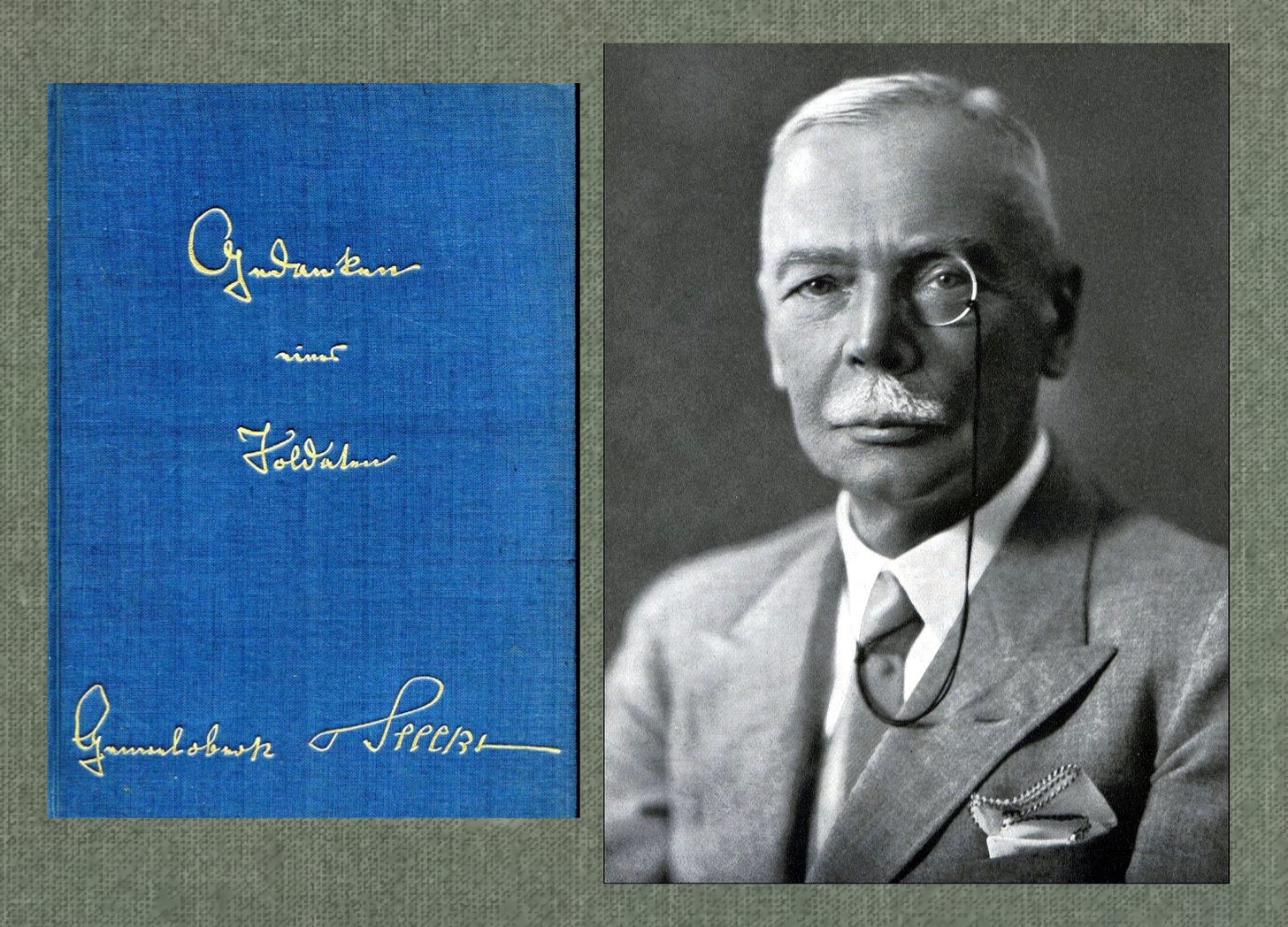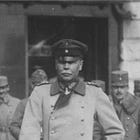Clichés
Hans von Seeckt
In 1927, a minor German press published Thoughts of a Soldier (Gedanken eines Soldaten). Written by Hans von Seeckt, who had recently resigned from his position as the senior military officer of the German Army, this collection of essays began with a chapter called ‘Clichés’ (Schlagwörte). The first installment of my multi-part translation of this work appears below.
A thoughtful man will always have to struggle against three things: stupidity, bureaucracy, and clichés. (Perhaps these are the same thing, if only because they seem to be everywhere.)
I leave the futile fight against stupidity to cleverer contemporaries and acknowledge the inescapable victory military bureaucracy, thereby giving myself the freedom to do battle against the clichés that have taken root in the military realm.
When I speak of the inevitability of clichés, I mean that people unable to think their own thoughts cannot avoid using them. In this way, the necessity (or, if you will, the utility) of clichés reveals its power, and thus the following passages serve only to encourage my contemporaries to think for themselves or, at the very least, to greet every cliché by asking ‘are you true?’
Though they have much in common, clichés are not the same thing as quotations, even when the latter belong to the realm of the laughably dangerous. Anyway, it gives a man comfort to discover that someone else has expressed his own thoughts in a more elegant and recognizable way. Apart from this, a quotation makes a surprising or powerful impression upon the mind of an educated man, such as a soldier of literary inclinations, when its comes from Goethe or one of the ancient Greeks rather than a drill manual.
To be continued …
Source
Hans von Seeckt Gedanken eines Soldaten (Berlin: Verlag für Kulturpolitik, 1929)





This is excellent, and, like Ecclesiastics, the message is timeless. It’s also small consolation that military bureaucracies and stupidity are also timeless. “Whatever exists has already been named, and what humanity is has been known” Ecc 6:10